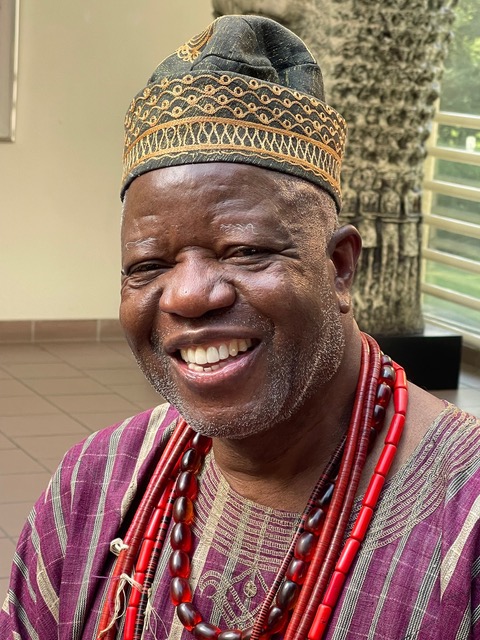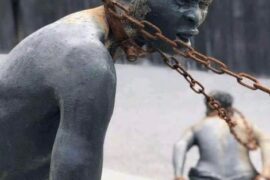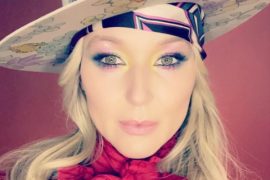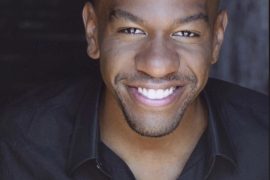P. “Patrick” Saingbey K. Woodtor is the founder, president, and executive director of the not-for-profit Africa International House USA, Inc., and executive producer of the Annual African Festival of the Arts.
The end-of-summer cultural arts celebration returns Labor Day weekend to Chicago’s historic Washington Park after a two-year hiatus due to the COVID under the theme “Back to Culture. Back to Tradition.”
“In the midst of the world’s turmoil, now is the time for us to unite as a community to find peace and strength and to determine new possibilities for our collective future’, says Patrick.
The Annual African Festival of the Arts is a multicultural art experience found nowhere else. In its 33rd year, hundreds of thousands of people have come to Washington Park on the Southside of Chicago to engage artists and other preservative cultures from all over the Africa Diaspora, including local, national and international performing artists, fine artists, fashion designers, galleries in art dealers, full sellers and many others.
N’DIGO caught up with entrepreneur Patrick Woodtor to talk about this eclectic end-of-summer cultural celebration!
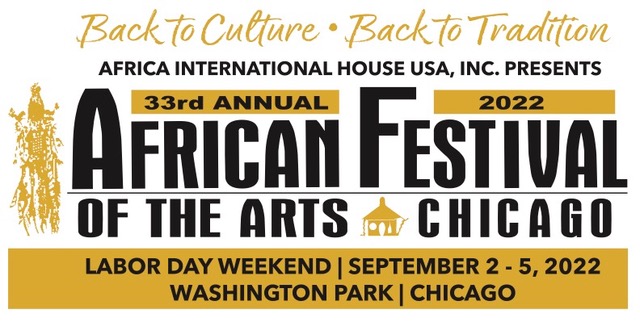
N’DIGO: How did the African Festival of the Arts come about?
Patrick Woodtor: I came from Liberia to Chicago and attended Northwestern University. I married an American woman who was interested in African Art and everything about Africa. So I learned to appreciate African Art through her. She was Dr. Delores Parmer and became Dr. Woodtor after we were married.
In 1979, we moved back to Liberia, but there was political turmoil, so we moved back to Chicago in 1981. My wife had purchased many African objects, which she called art. That is what we survived on for two years because we couldn’t find jobs. So I began selling these objects and opened Window to Africa in Hyde Park Harper’s Court.
It began with a small group of artists and community enthusiasts interested in marketing and promoting African-based cultures and creating a marketplace for African and Afrocentric products and services; through the activities in the store, we started the African Festival in 1989.
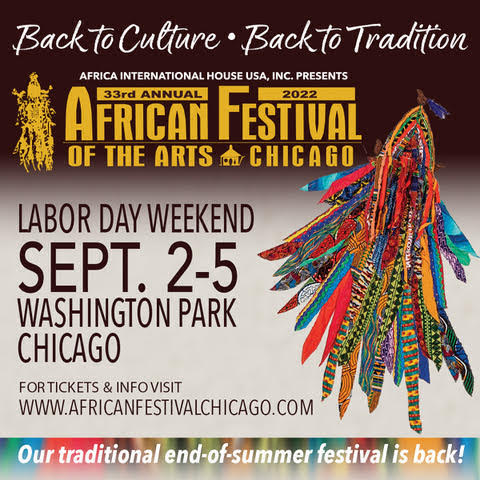
How did the African Festival of the Arts grow?
Initially, there was a lot of interest from the African population and Black Chicago. Initially, there was a lot of interest from the African population and Black Chicago. I worked with the late Jesse Williams Jr., the arts businessman who owned the Third World Imports shop in Harper Court, who helped produce the festival. I watched you (Hermene Hartman) help cultivate and grow the Black Expo.
Hyde Park is an international community, and I saw how the residents of showed their appreciation and support. That is the genesis of the festival, and it grew from there.
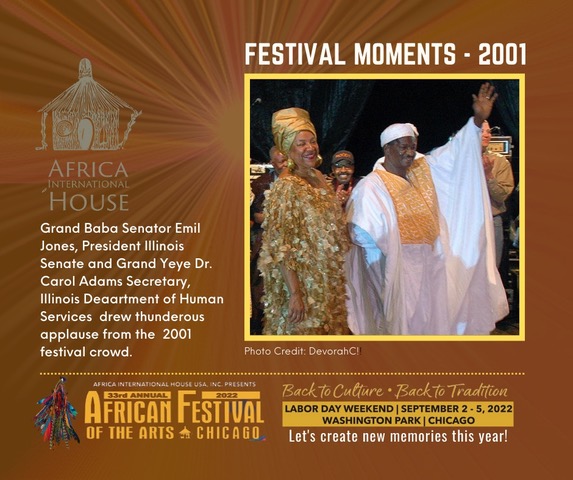
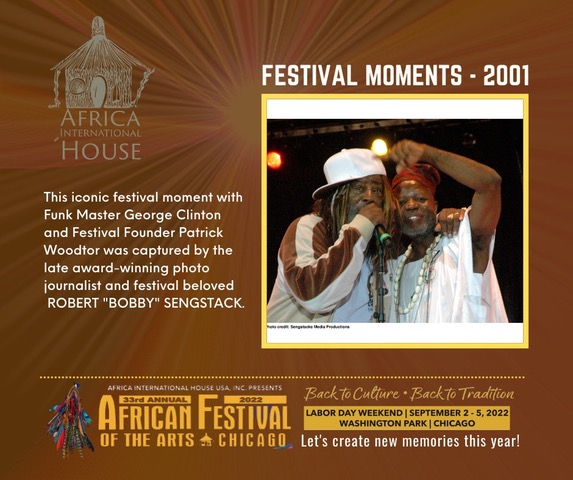
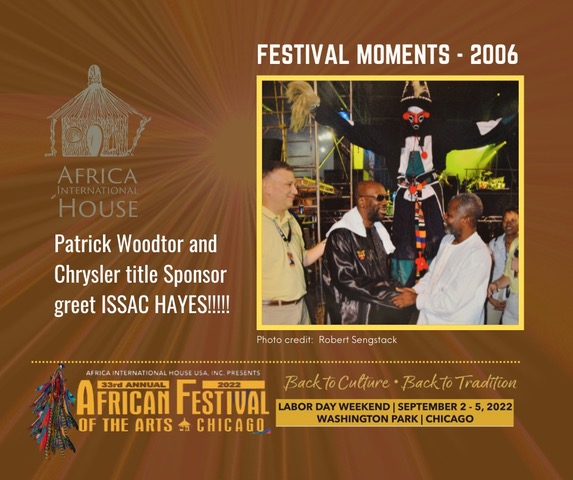
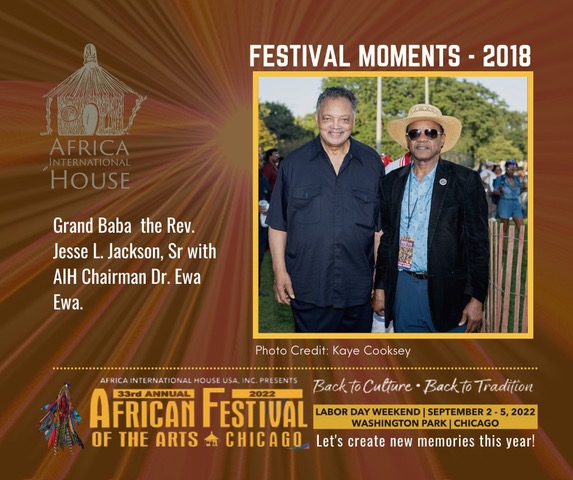
What are some of your favorite moments of the festival?
We have brought so much incredible talent to Chicago and helped to introduce and grow Black artists who are painters, sculptors, and designers.
The African Festival of the Arts is credited with helping many have a career. It has become a destination event where people from Africa, Europe, South America, and Asia come to participate. We are committed to exposing emerging and under-exposed artists from around the world.
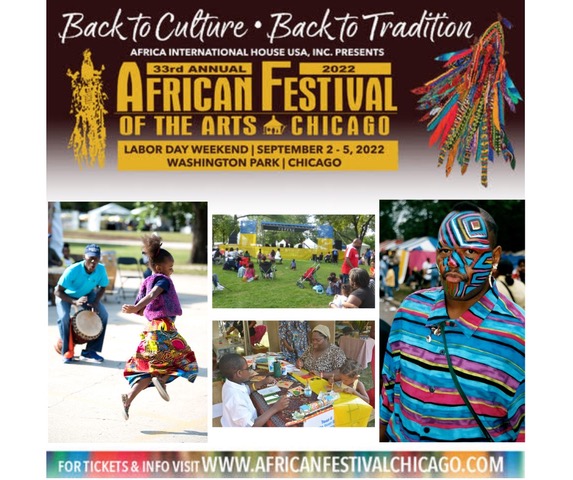
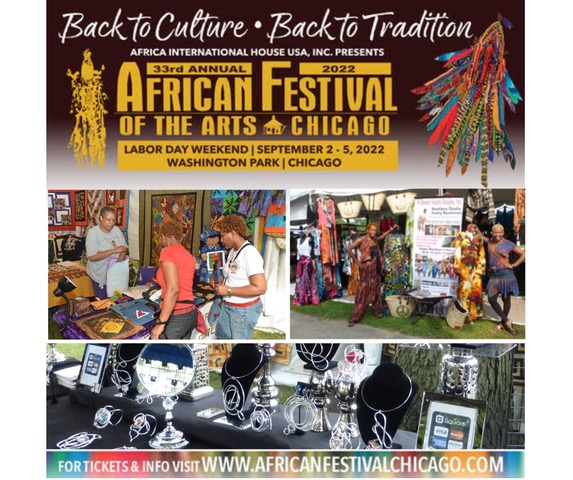
What do you like most about the Festival?
The artists. We bring Black artists together. It has become a family affair, like a family greeting from Africa to America. We have never had an incident. It is the safest festival in Chicago.
It’s nice to have Black people come together and celebrate each other with art, food, jewelry, entertainment, and mingle freely. It’s an annual greeting, a big celebration. Families as far as New York and California come to the festival. It’s helped and encouraged Black people to be connected around the world. The African Festival has helped tourism to Africa and the Caribbean.
We have impacted Black people nationally to travel. I know many people who met at the festival and got married. Businesses have collaborated significantly with corporations, providing a platform for some to sell worldwide. It is a training ground for new businesses that have not had the exposure or training to do what they do now. Some of the artists bring with them, apprentices. One such person is Henry Colby. He has trained a lot of young people in jewelry making.
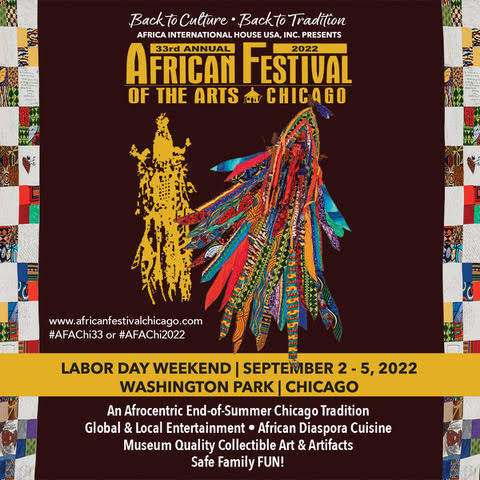
Who are the honorees for this year’s festival?
This year the honoree for art is Renau Diallo. Our Grand Baba (Father) is the Honorable Minister Louis Farrakhan, and the Grand Yeye (Mother) is State Senator Mattie Hunter.
Have you ever thought about taking the festival to other cities?
We have to make money here first. We have officials coming from Jackson, Mississippi, Las Vegas, and New Orleans to invite us to bring the festival to their cities. This is hard work, and it is hard to move around. Today, many cities with large Black populations have such a festival.
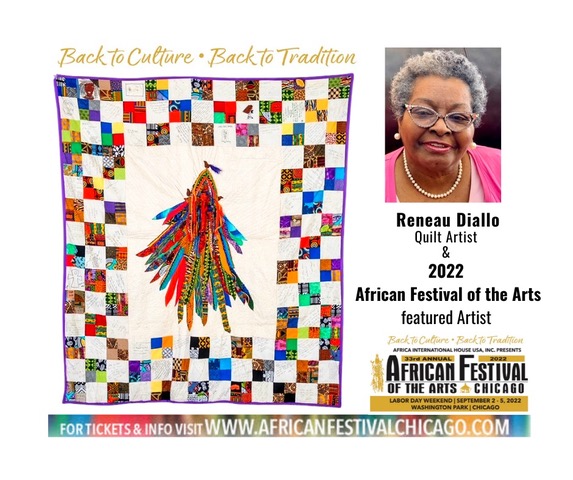

What will be the highlights of this year’s festival after COVID?
We usually have picture artists; this year, we will have a community of quilt artists featuring the ancestral icon representing the ancestors.
What do you hope the festival brings to Chicago?
A good example is Frank Frazier, a popular artist who makes handmade neckties, now in his 80’s. Frank has been a regular attendee because he is always able to sell work, and he brings in younger and emerging artists to get exposure and connect to art collectors.
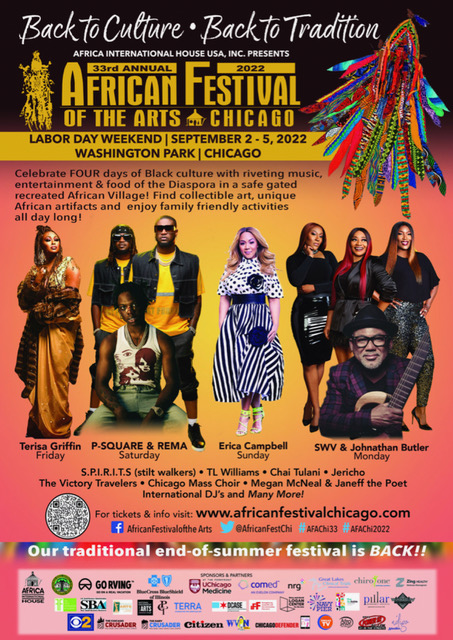
What is unique about this year?
We do not have a music headliner. We wanted to represent the music of the Diaspora. Local artist Terisa Griffin will start things off and launch the “Harambee” reunion celebration with her soul-stirring R&B favorites.
Then we go to Nigeria with the AFRO pop sound P Square. And on Sunday, we have Gospel with a message from a Ghanaian, Eric Aidoo, and Grammy Award-winning artist Erica Campbell (part of the sister duo Mary Mary) closing out the day.
On Monday night, The R&B award-nominated SWV (Sisters with Voices) will sing their classic hits and rock the park before South African singer-songwriter Jonathan Butler and other artists from South Africa bring the festival to a close.
Why should a person visit the African Fest?
Fun. Family Reunion. Cultural emerging and a good place to be next to actually going to Africa. It is a weekend when Africa comes to Chicago. It’s a place FOR collectors. It’s a place to come to discover Africa.
Visit: https://www.aihusa.org/african-festival for full performance and ticket information about the 33rd Annual International House Gala and the 33rd Annual African Festival of the Arts.


